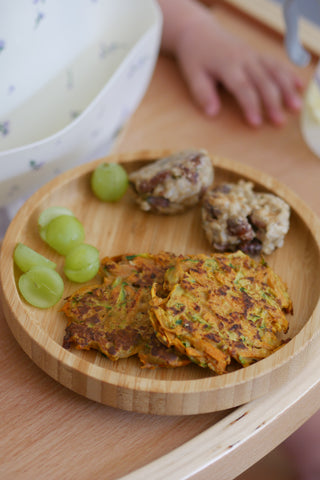Baby Divided Plates: Why Nutritionists Say, 'No Thanks!
Nutritionists are the unsung heroes of the dietary world, armed with their expertise and a keen eye for what's best for your little one. When it comes to baby plates with dividers, they often raise an eyebrow and a spoonful of caution. So, why do nutritionists steer clear of these partitioned plates? Let's dive into the dietary drama!
The Peril of Portion Control
Divided plates are all about portion control, right? Well, that's where the tricky business starts. Nutritionists emphasize that babies need to learn to recognize their hunger and fullness cues. When you pre-portion their meals into neat compartments, you take away the opportunity for them to self-regulate their food intake. Nutritionists know that every baby is different. One-size-fits-all portions may not suit your child's unique nutritional needs. It's essential to tailor meals to your baby's appetite and growth stage rather than adhering to rigid partitions.
Food Exploration Foiled
Babies are like little food scientists, exploring textures, colors, and flavors. Divided plates can stifle their curiosity, making mealtime more about structure and less about sensory discovery. Nutritionists encourage a more "play-based" approach to eating, allowing your tiny gourmand to touch, feel, and even smear food – all part of the learning process!

Cleanup Conundrum
One thing nutritionists and parents agree on is that divided plates are a cleanup nightmare. Food gets stuck in those partitioned grooves, and we all know how hard it is to get every last pea or carrot crumb out of those nooks and crannies. Plus, let's not forget the post-meal food art smeared across the high chair!
Developing Healthy Eating Habits
Nutritionists emphasize that introducing babies to a variety of textures, flavors, and whole foods is key to developing healthy eating habits. They suggest serving baby food in its natural form whenever possible and allowing your little one to explore the world of tastes without artificial boundaries. Foods groups not touching each other may result in a fussy eater down the track when it comes to eating the same meal as other family members.
Nutritionists are all about fostering a positive, nutritious relationship with food from an early age. While baby divided plates may seem like a convenient option, they might not be the best choice for nurturing healthy eating habits and exploration. So, next time you're setting up a meal for your little one, consider embracing the joy of food discovery without the constraints of those sneaky dividers!
